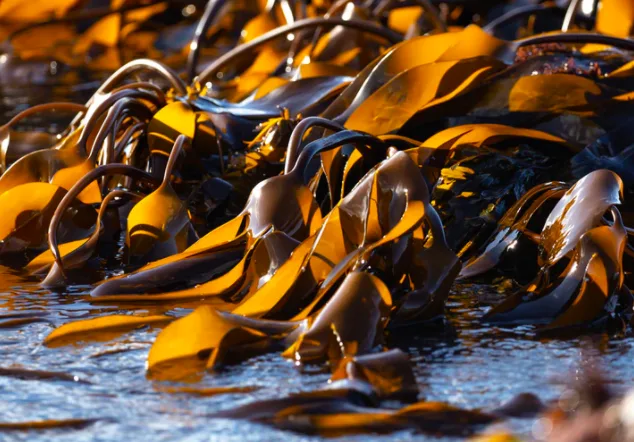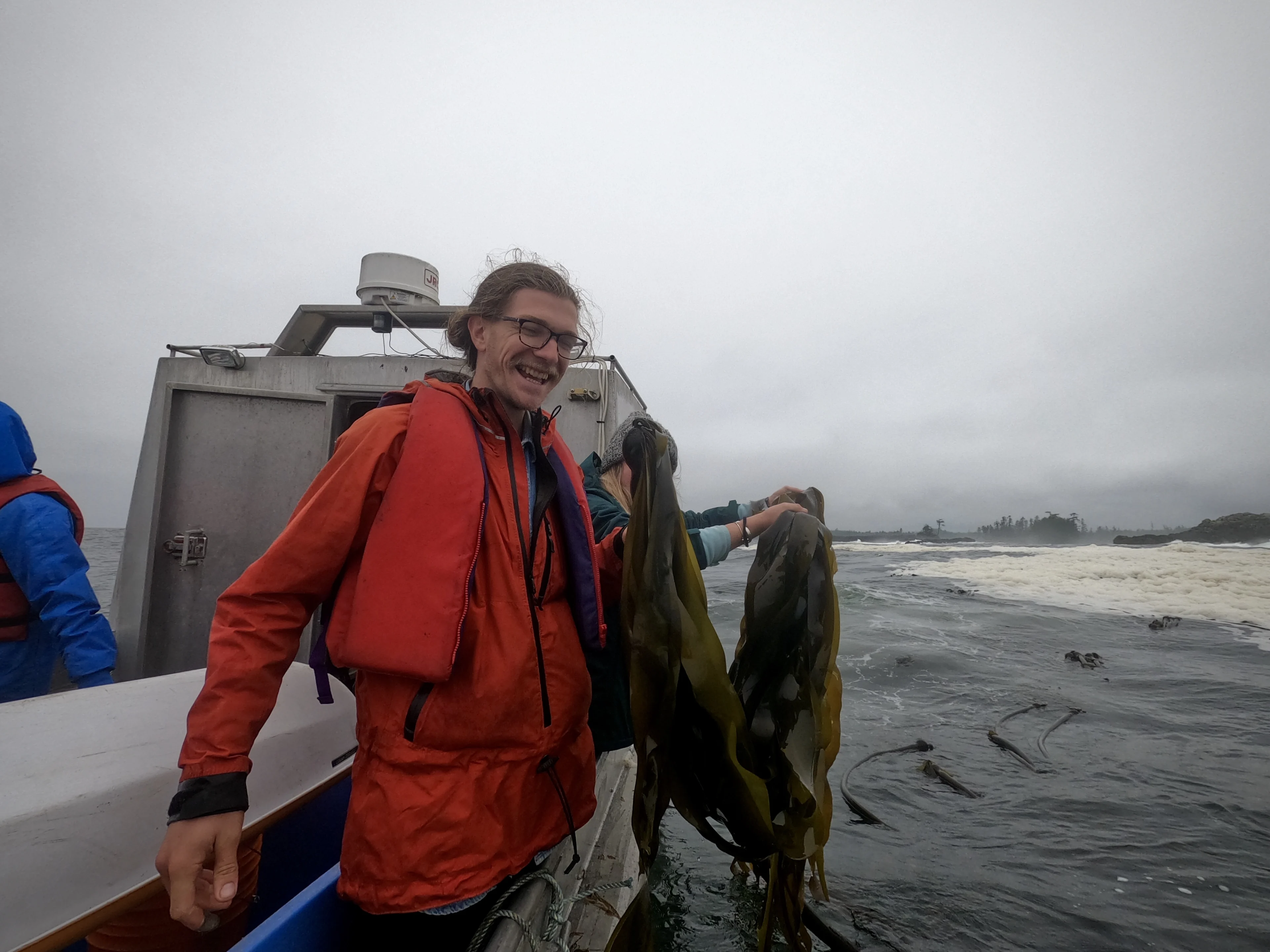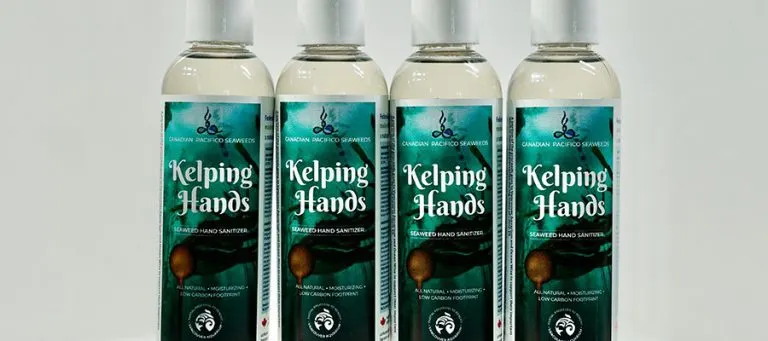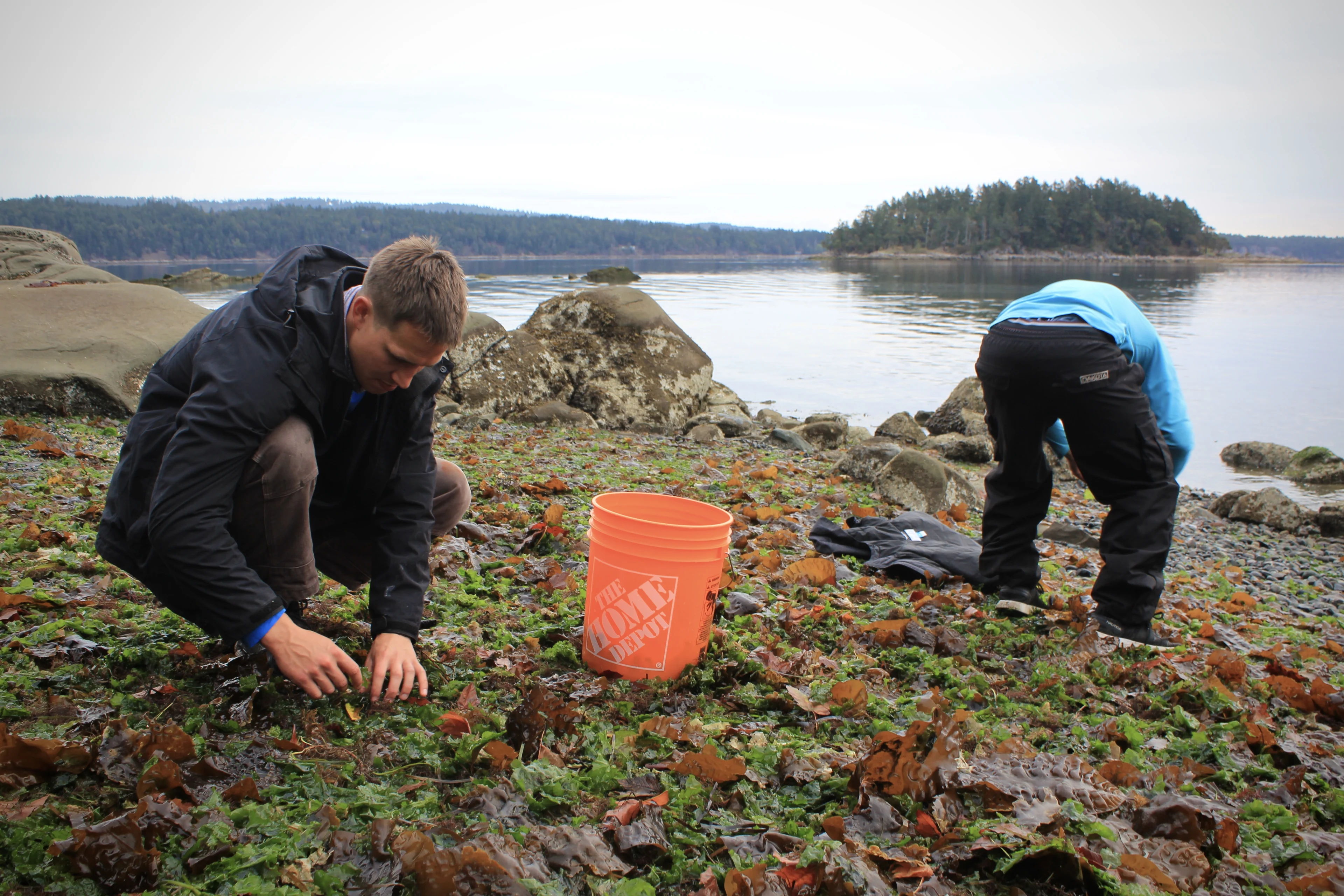
Seaweed hand sanitizer is fighting COVID-19 in an eco-friendly way
Seaweed-based hand sanitizer is an eco-friendly alternative to traditional products that use glycerin, which has a high carbon footprint.
Bamfield, British Columbia, is mostly known for its small fishing community but off the coast you will find one boat that is searching for seaweed.
When Majid Hajibeigy first started classes at the University of British Columbia (UBC), he thought his dream was to work with big animals in Africa. He wanted to become the world’s next David Attenborough or Jane Goodall. Yet, soon after entering veterinary studies, Hajibeigy changed course to incorporate his family’s farming history, and landed in the sustainable food production at UBC’s Land and Food Systems faculty.
It was during his education at UBC that Hajibeigy realized the true potential of kelp as a superfood, so raising the profile of seaweed as an eco-friendly animal feed became his goal. His company Cabadian Pacifico Seaweeds (CPS) was born.
Climate scientists from around the world have been turning their focus towards seaweed too, since these underwater ecosystems can capture up to 20 times more carbon dioxide from the atmosphere than land forests — seaweed stores carbon in its tissues and when the plant dies their leaves, roots, and stems are buried in underwater sediment for decades.

A CPS employee harvesting seaweed. Credit: Majid Hajibeigy
When Hajibeigy’s company first went into business the B.C. seaweed industry was in its infancy. CPS was involved in several studies both locally at UBC and with international partners on the valorization of seaweed. On top of that CPS brought on chefs and food scientists and worked with Commissary Connect and Kwong Fung Food to manufacture and distribute goods that CPS formulates.
But little did Hajibeigy know, CPS would have even greater impact during the COVID-19 pandemic.
As the virus spread in March 2020, people were trying to find ways to stay safe and hand sanitizers were flying off the shelves. Hand sanitizer sales were up 792 per cent during the first week of March compared to that same week in 2019 and the Canadian federal government began approving product licenses for non-traditional manufactures, such as distilleries, to keep up with the demand.
While frequent hand cleaning has had a positive impact in reducing the spread of COVID-19, mass producing hand sanitizer has harmful impacts on the environment.
“In times of COVID-19, glycerin is a really high used commodity, and it also happens to be a very high carbon footprint product,” Hajibeigy told The Weather Network.
Hajibeigy reached out to Guernsey Seaweed, a company based in the United Kingdom that created a formula for a seaweed hand sanitizer. He then partnered with Wayward Distillery in Vancouver Island to bring the product to life. They mixed the seaweed gel with alcohol to create Kelping Hands, an FDA approved hand sanitizer.

Credit: Majid Hajibeigy
“The product is good for the planet because it is filtering carbon out of the ocean and it is reducing the carbon that we are putting out by reducing glycerin. On top of that it is all natural and provides vitamin E and antibacterial properties from the seaweed itself.”
Hajibeigy was particularly proud of this product because it met all three pillars of sustainability, something that he strives for in all of his work: It helped the environment, the economy, and society. On top of that, it also has a charity component. Proceeds of the sales are going towards the Vancouver Aquarium, which was forced to shut its doors to the public during the pandemic.
Hajibeigy is hoping that Kelping Hands is just the start in showing the world the true powers of seaweed.

CPS employees collecting seaweed near the shore. Credit: Majid Hajibeigy
“We have a very productive ocean, the Pacific Northwest is known as a biodiversity hotspot and also a hotspot for a bunch of different species and seaweed can be used for totally different avenues and streams. From our sanitizer gel, to cosmetics, supplements, food, fertilizer, agrifeed, construction material. It really just depends on the species.”
But in order to rely on seaweed as a source for these products, there needs to be an abundance of seaweed, so CPS is focusing on farming and cultivation.
“We want to be low impact and sustainably minded, so we have set up farms to add seaweed to the ocean. That is the one thing we always promote. We also lower our impact on the ocean by spreading our harvest around.”
Hajibeigy adds that they will only harvest during the fall, after it has already broken off most of its body mass. When asked if seaweed can be a solution to climate change, Hajibeigy said “most definitely, but added we need to do it right.”
Thumbnail credit: Ben Wicks via Unsplash












